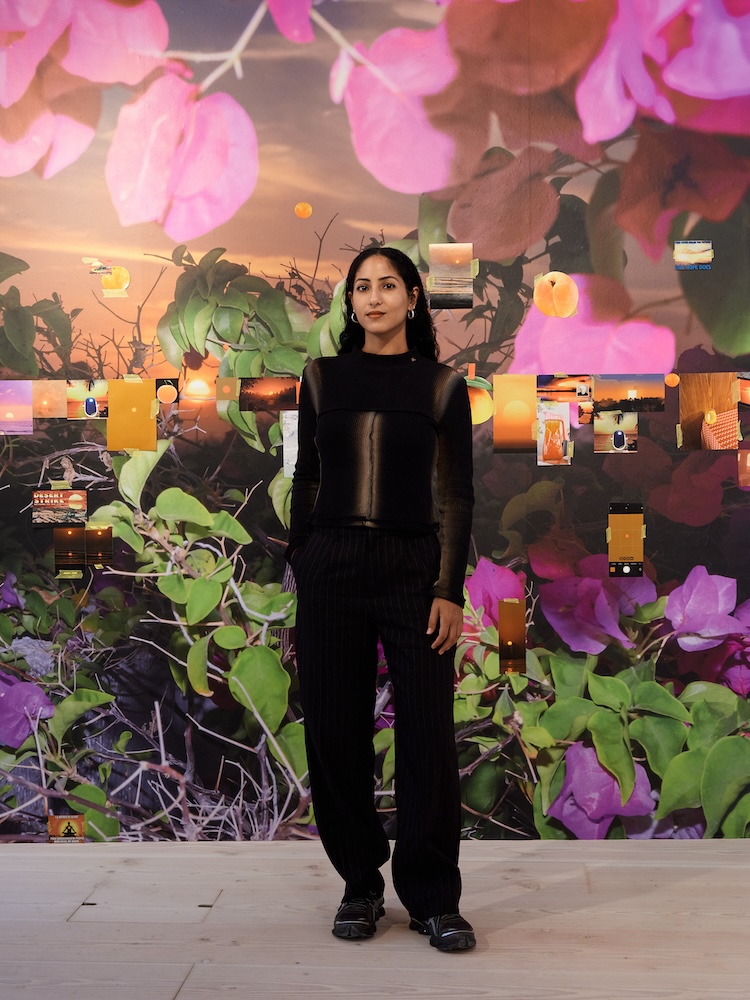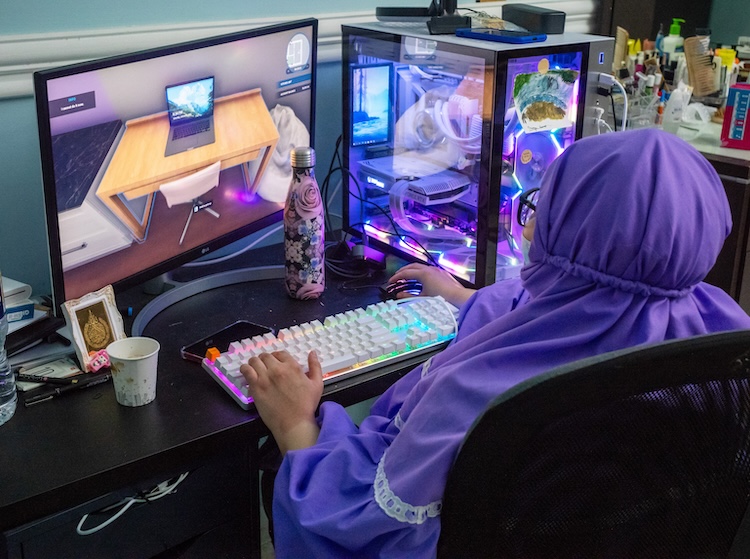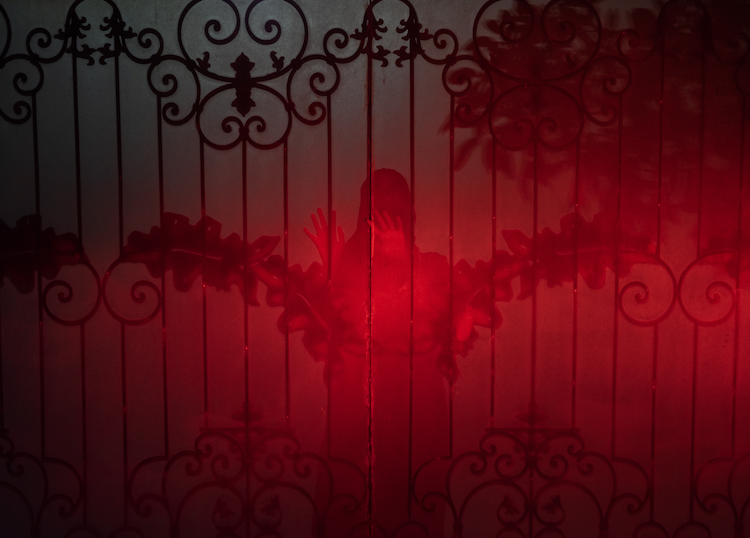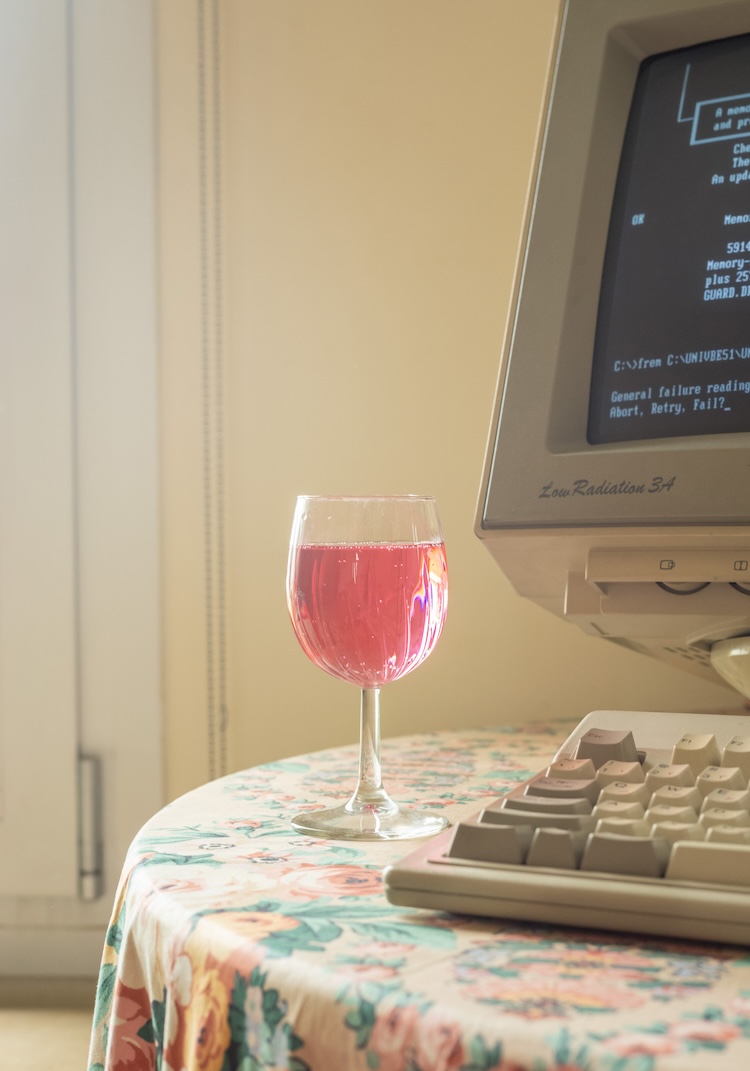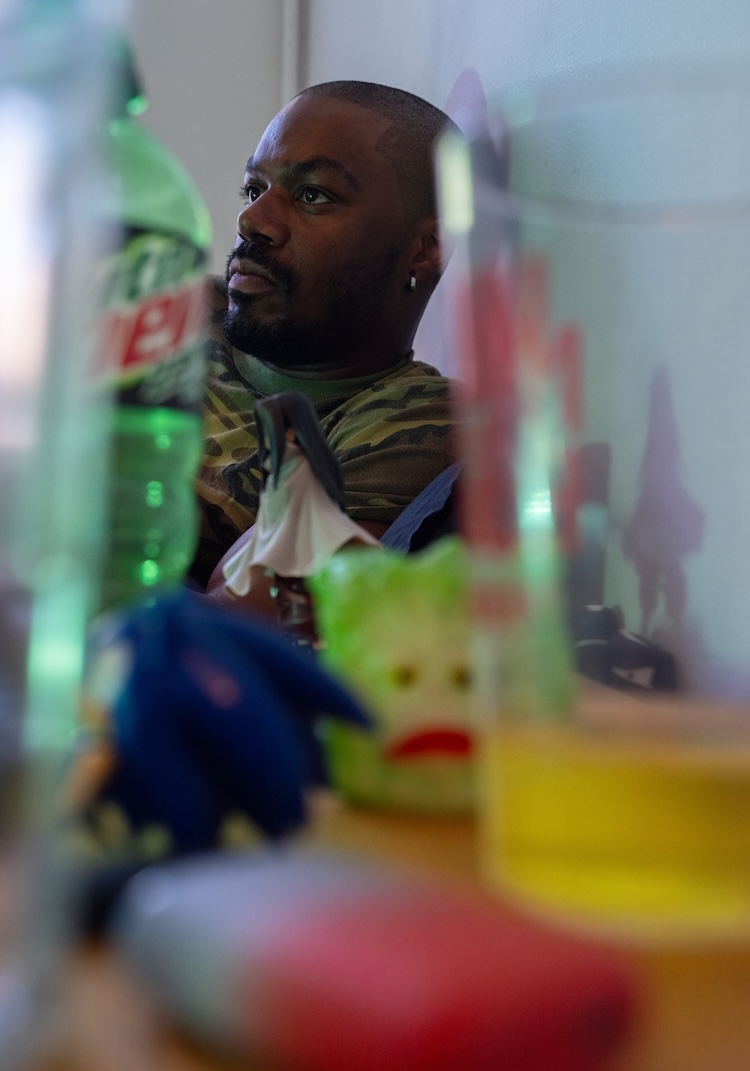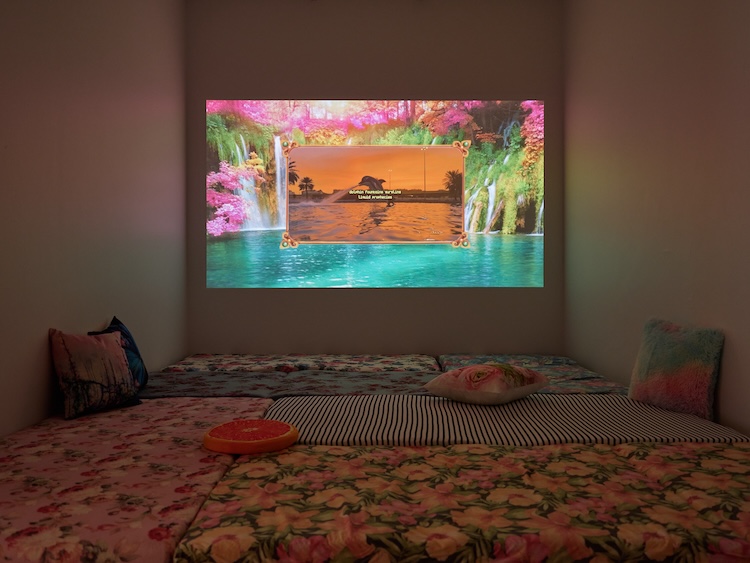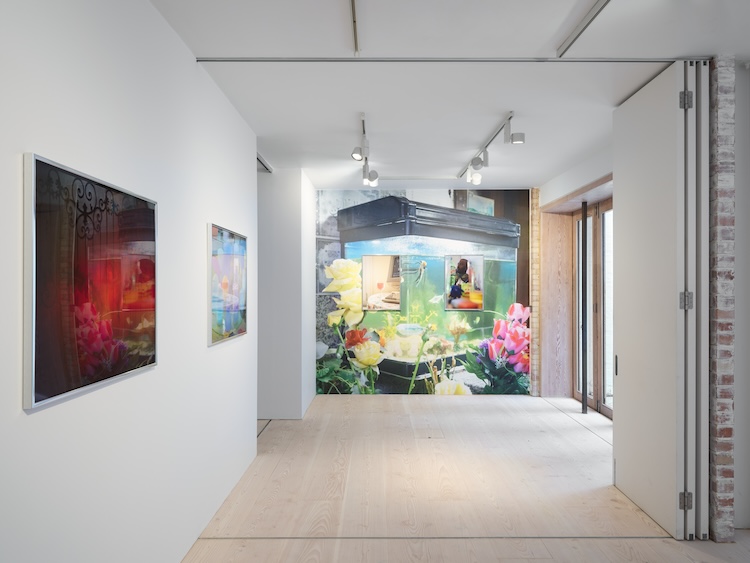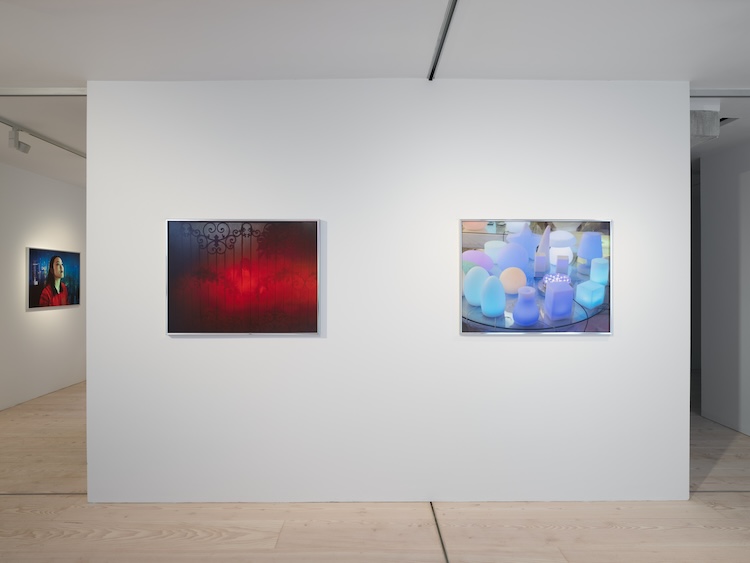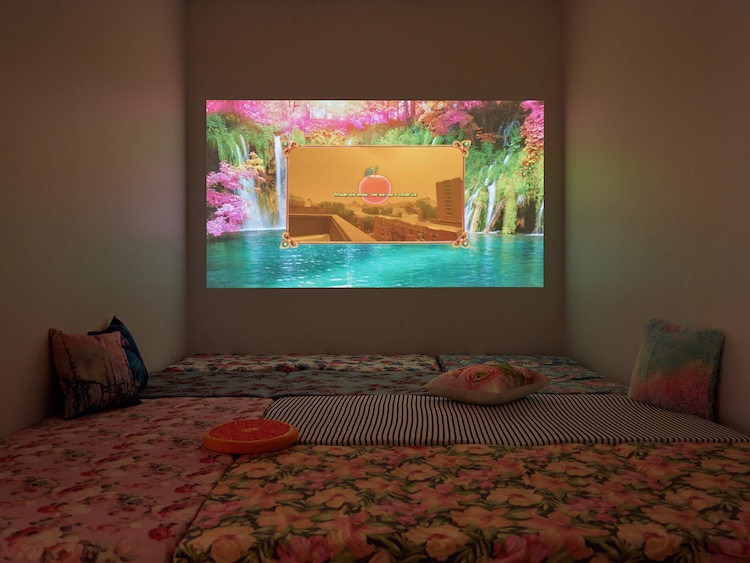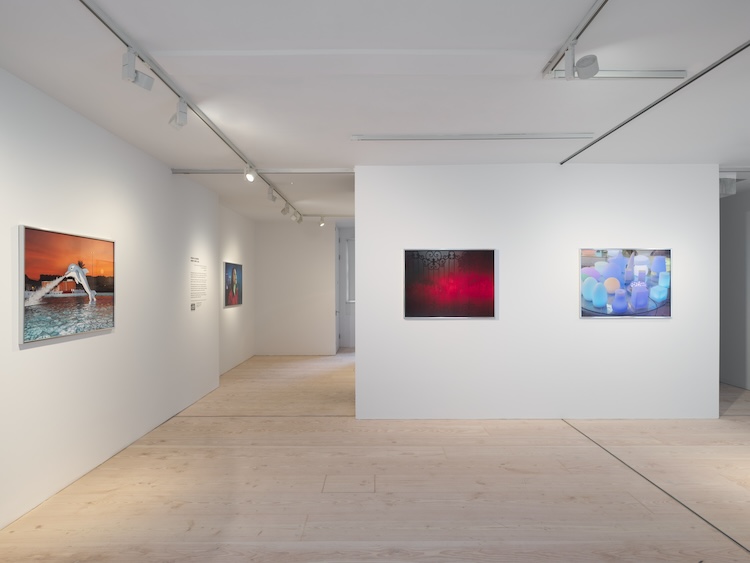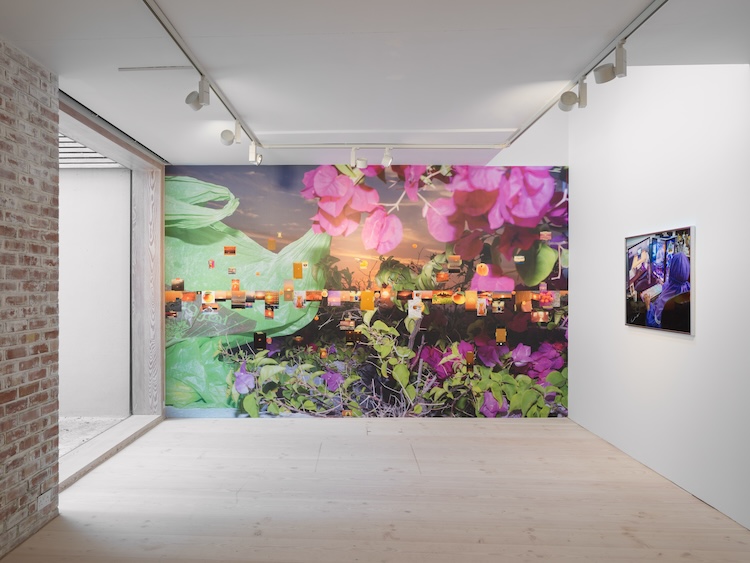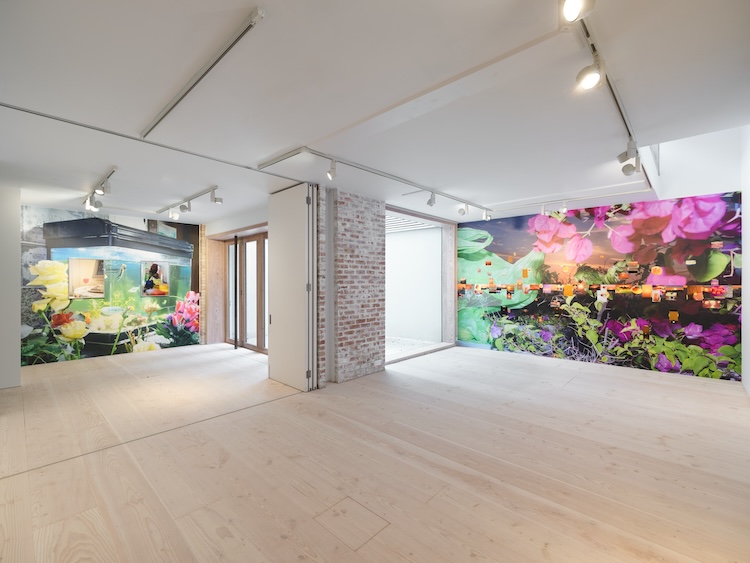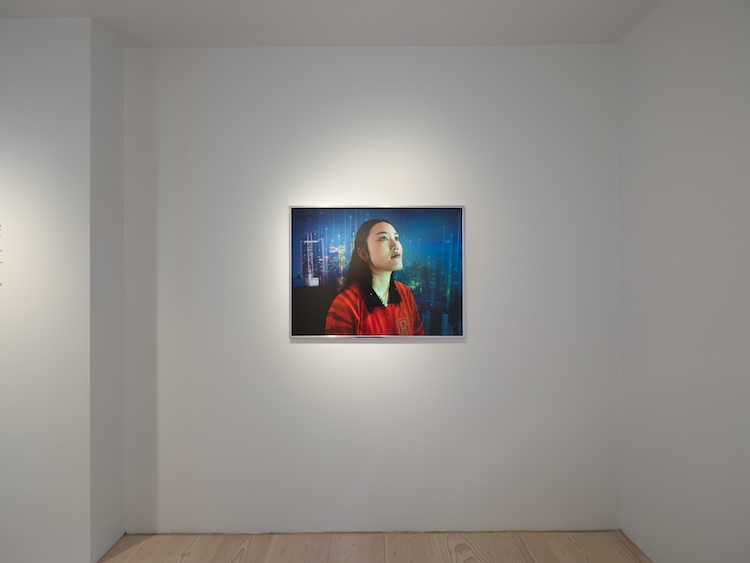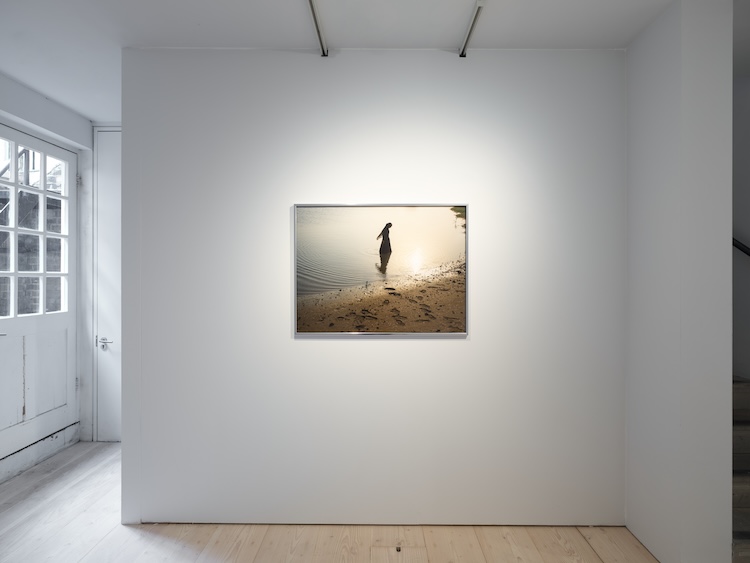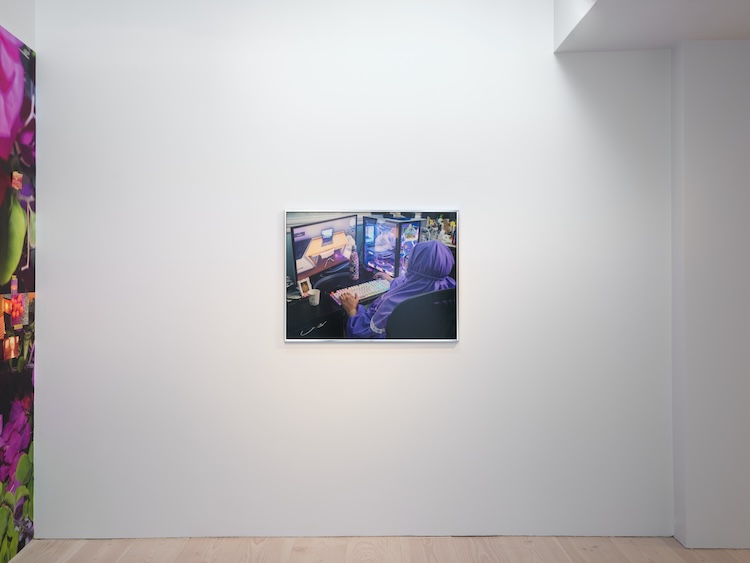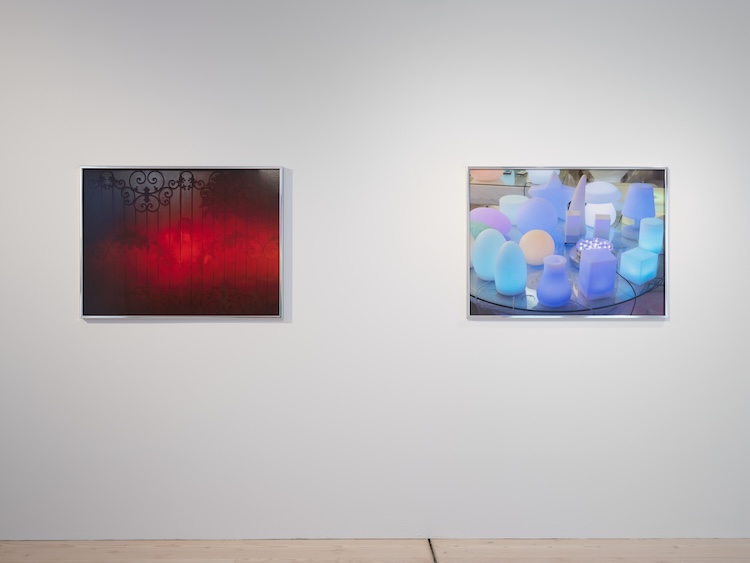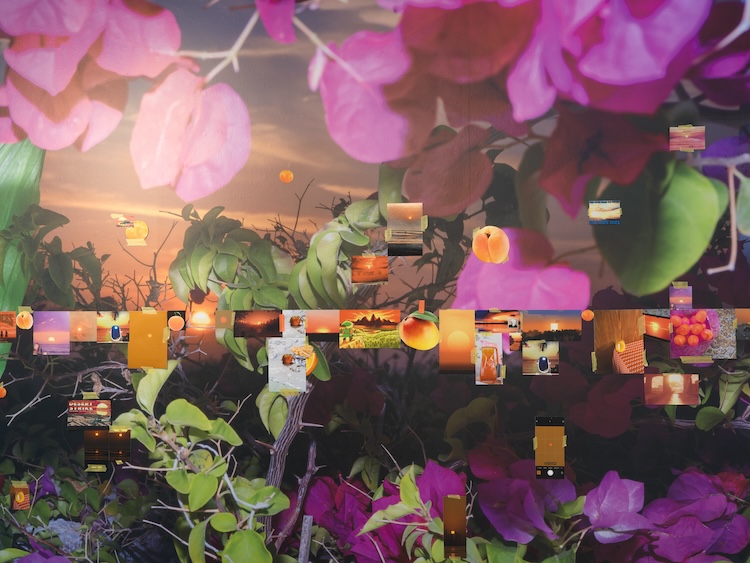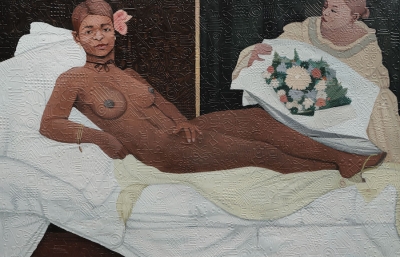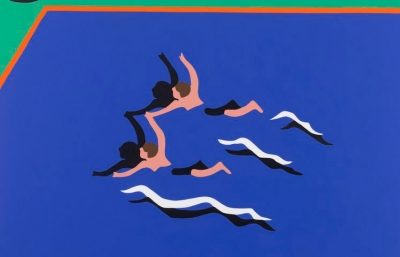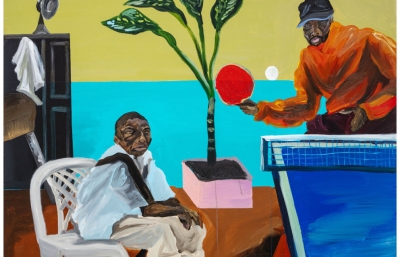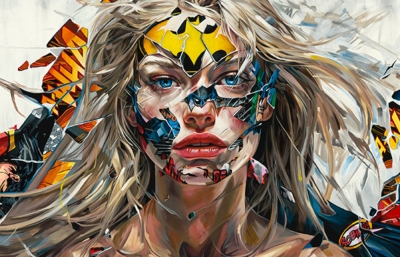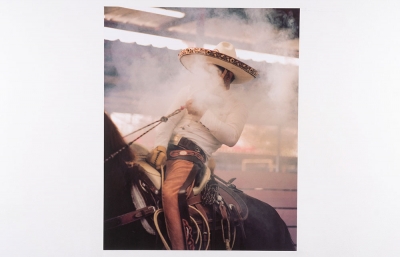Delfina Foundation is proud to present the first UK solo exhibition by its former resident Farah Al Qasimi, made possible through the generous support of Abu Dhabi Festival. Based between Brooklyn and Abu Dhabi, Al Qasimi’s still and moving image works vibrantly capture glimpses of everyday life and the entangled relationship between material culture and globalised societies. This exhibition comprises new photographs, vinyl wallpaper works, and a specially commissioned video, which coalesce to create a layered visual constellation.
The show takes its title from a computer error message that flashes up on Al Qasimi’s now defunct family computer. This machine connected the artist and her family to the world in the early days of dial-up internet, and until its recent malfunction was a portal for escape from reality, as a pirate, a gunslinging biker, or a tiny ball bouncing off the edges of the screen.
Abort, Retry, Fail is an index of attempts to transcend or deny the natural world through entering fictional ones that promise autonomy and disembodiment. Several of the photographs in the exhibition lay their gaze on gamers, their attention held by a screen beyond the photographic frame. They appear firmly rooted in the material world and yet are transported elsewhere, absorbed in fantasy realms of exploration, purpose, and play.
Interspersed with these gamers are photographs that continue the artist’s long-time practice of capturing the overlooked and under-examined everyday. These photos of seemingly mundane places and objects converge around a theme frequently alluded to in Al Qasimi’s work: our alienated relationship to the natural world. One wall becomes an ode to the sun, caught through wildfire or sandstorm haze; a perfectly round, almost cartoon-like object rendered an encroaching source of danger. A photograph of a sunset appears to be a stock image until we see its edges; plastic bags and trash cloud a sense of idealism and calmness. The sun’s poisonous shade of orange is echoed in other photographs, in apricots, construction hoarding, and plastic flowers. On another wall, a spectral figure of a woman cloaked in a red beam of light seems to be trapped behind an iron gate in a sea of leaves. A dolphin-shaped fountain spouting water with comical urgency at first appears an affable, whimsical sight and yet such stark synthetic reproductions of the natural world hold allusions to our accelerating ecological collapse, from which escape entices, but may not suffice.



